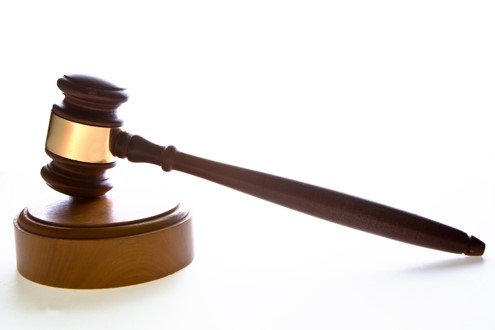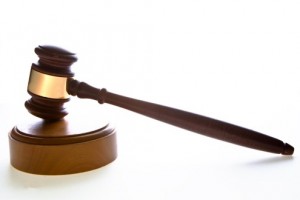Colorado Criminal Law – Restitution Orders Can Exceed Actual Amount Of The Crime Charged
By H. Michael Steinberg Colorado Theft Crimes Criminal Defense Lawyer
Colorado Criminal Law – Restitution Orders Can Exceed Actual Amount Of The Crime Charged Restitution orders in Colorado are complex and the types and amounts of restitution orders continues to expands. One area of that expansion is when restitution is ordered to reimburse victims in theft cases for so called expert “forensic audits,” employee time reviewing records and for time to prepare for trial.
Every Colorado restitution court order must be based on a specific “pecuniary loss” to a “victim” under the law – 18-1.3-603(1), C.R.S. Restitution intended to make the victim “whole” and no more. Finally restitution ordered for a “loss” may be one specifically listed in the statute OR it can be ordered for a loss or injury that is “proximately caused by an offender’s conduct and that can be reasonably calculated and recompensed in money.” Section 18-1.3-602(3)(a), C.R.S.
That leads us to the need to further define “proximate cause:”
“Proximate cause” for purposes of restitution has been defined as “a cause which in natural and probable sequence produced the claimed injury” and “without which the claimed injury would not have been sustained.”
In the recent case of People v. Stotz, employees who had resigned from their positions with a Colorado corporation deleted files from laptops they were assigned as part of their employment.
A felony case was filed and in the company’s “victim impact statement” they sought to recover tens of thousands of dollars in excess of the jurisdictional limits for the crime the Defendants were convicted of – Computer Crime with damages of $1,000.00 or more but less than $20,000.00.
The court awarded restitution in the amount of $51,181.78 in restitution for employee costs associated with time spent recovering the documents. While the Defendant’s argued on appeal that the Trial Court should not have ordered an amount of restitution that exceeded the amount of loss found by the jury – (less than $20,000), the higher court did not agree.
The Law In Colorado Restitution Cases And The Colorado Court’s Restitution Order In Stotz
When deciding questions regarding issues of restitution, the Trial Court has VERY broad discretion to determine the terms and conditions of a restitution order. The accused should understand that an appeal of the Trial Judge’s ruling on restitution will likely NOT be overturned. The “abuse of discretion” standard is applied when a Defendant appeals the Trial Courts restitution order.
“We will not disturb the [trial] court’s determination as to the proper amount of restitution if it is supported by the record.”
The Analysis:
I. As part of “every order of conviction,” a trial court must order a defendant to pay restitution if the defendant’s conduct caused pecuniary loss to a victim. § 18-1.3-603(1), C.R.S.
II. ‘Restitution’ means any pecuniary loss suffered by a victim and includes but is not limited to all out-of-pocket expenses, interest, loss of use of money . . . and other losses or injuries proximately caused by an offender’s conduct and that can be reasonably calculated and recompensed in money.” § 18-1.3-602(3)(a), C.R.S. 2015.
III. Proximate cause is defined as “a cause which in natural and probable sequence produced the claimed injury and without which the claimed injury would not have been sustained.”
IV. The prosecution bears the burden of proving the amount of restitution owed by a preponderance of the evidence.
The Expansion Of The Legal Term – “Actual Pecuniary Damages” In Colorado Restitution Cases
The Stotz case stands for TWO major propositions:
I. An employee’s time investigating and perhaps, repairing, the damage done in a criminal case falls within the definition of “actual pecuniary damages.”
The value of an employee’s time constitutes “actual pecuniary damages” sustained by a victim company, and the value of such time is appropriately included in a restitution award, regardless of whether any funds in addition to the employee’s regular salary were expended by the victim company.
Because the value of employees’ time spent on tasks that have been made necessary by a Defendant’s conduct is compensable – generally speaking other “problems” caused by Defendants’ criminal acts may be the kind of “pecuniary loss” that is compensable by an order of restitution.
II. The Trial Court is not limited in It’s restitution order to the actual conviction jurisdictional limits of the crime charged.
A jury’s verdict that a Defendant committed Computer Crime (for example causing a loss of more than $2,000.00 but less than $20,000,00), does NOT limit the restitution amount or impose any kind of cap of $20,000.00.
Summary and Conclusion
Trial Courts may consider both uncharged and acquitted criminal conduct that has been proved by a preponderance of the evidence and are not limited to considering only the criminal conduct which a defendant was found beyond a reasonable doubt to have committed.
Colorado Criminal Law – Restitution Orders Can Exceed Actual Amount Of The Crime Charged
If you found any of the information I have provided on this web page article helpful please click my Plus+1 or the Share buttons for Twitter and Facebook below so that others may also find it.
Never stop fighting – never stop believing in yourself and your right to due process of law.
ABOUT THE AUTHOR: H. Michael Steinberg – Email The Author at [email protected] – A Denver Colorado Criminal Defense Lawyer – or call his office at 303-627-7777 during business hours – or call his cell if you cannot wait and need his immediate assistance – 720-220-2277. Attorney H. Michael Steinberg is passionate about criminal defense. His extensive knowledge and experience of Colorado Criminal Law gives him the edge you need to properly handle your case.
“A good criminal defense lawyer is someone who devotes themselves to their client’s case from beginning to end, always realizing that this case is the most important thing in that client’s life.”
You should be careful to make a responsible choice in selecting a Colorado Criminal Defense Lawyer – and we encourage you to “vet” our firm. Over the last 40 plus years – by focusing ONLY on Colorado criminal law – H. Michael has had the necessary time to commit to the task of constantly updating himself on nearly every area of criminal law, to include Colorado criminal law and procedure and trial and courtroom practice. H. Michael works hard to get his clients the best possible results in and out of the courtroom. He has written, and continues to write, extensively on Colorado criminal law and he hopes this article helps you in some small way – Colorado Criminal Law – Restitution Orders Can Exceed Actual Amount Of The Crime Charged.

